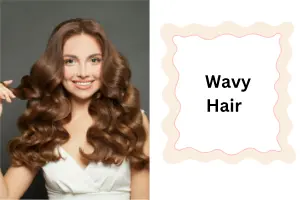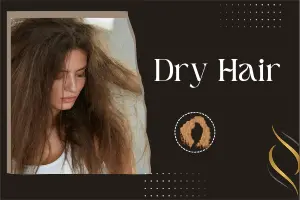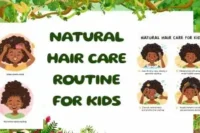A Guide to Different Types and Best Hair Care Practices
Published: 16 Oct 2024
Have you ever wondered what makes the hair on your head different from the rest of your body? It’s more than just where it grows. Hair texture, curl pattern, and strand thickness all vary, and these differences shape how your hair behaves. Understanding your hair type is the first step to proper hair care. It helps you choose the best hair care practices, prevent damage, and style your hair in ways that enhance its natural beauty.
The Foundation of Hair Typing
Hair typing is a method used to identify hair based on how straight, wavy, curly, or coily it is. It also looks at the size of the curl and the overall texture. Understanding this system can help you unlock The Magic of Wavy Hair and choose routines that enhance your natural pattern.

This system helps you find the right products and routines for healthy, well-maintained hair. Most hair types fall into four main categories, each with unique needs and characteristics.
Understanding Hair Type 1: Straight Hair
Hair Type 1 is naturally straight and smooth. The strands lie flat and allow scalp oils to travel down easily, which gives the hair a shiny look. However, it tends to get oily fast and doesn’t hold curls well.
Hair Care Tips for Type 1
- Wash your hair regularly with a gentle shampoo to control oil.
- Avoid heavy conditioners that weigh hair down.
- Try layered cuts or sleek ponytails for simple styling.
Unpacking Hair Type 2: Wavy Hair
Type 2 hair is wavy and forms loose S-shaped curves. It usually has more body than straight hair and may be prone to frizz in humid weather.
Hair Care Tips for Type 2
- Use sulfate-free shampoos and hydrating conditioners.
- Define your waves with light gels or mousse.
- Opt for beachy waves, braids, or layered bobs.
Exploring Hair Type 3: Curly Hair
Type 3 hair features clear, defined curls. These can range from loose ringlets to tight spirals. It’s naturally voluminous but can be dry or frizzy.
Hair Care Tips for Type 3
- Use moisturizing shampoos and deep conditioners.
- Apply leave-in treatments to keep curls hydrated.
- Try twist-outs, braid-outs, or curl-defining products for better shape.
Delving into Hair Type 4: Coily/Kinky Hair
Type 4 hair has tight coils or zigzag patterns. It’s the most fragile type and prone to shrinkage. Coily Hair Care focuses on providing intense moisture and gentle handling to maintain its health and definition.
Hair Care Tips for Type 4
- Deep condition weekly and seal in moisture with oils.
- Use protective styles like cornrows, twists, and buns.
- Style with shea butter or curl creams for definition.
Taking Care of Different Hair Textures
No matter your hair type, moisture is key. Dry hair breaks easily and looks dull.
Deep conditioning, regular trims, and gentle handling are the basics of good hair care for all types of hair, ensuring strength, shine, and manageability across every texture.
Product Matching by Hair Type
- Type 1: Lightweight serums or volumizing shampoos.
- Type 2: Curl creams or frizz-control mousse.
- Type 3: Curl-enhancing gel or leave-in conditioner.
- Type 4: Heavy butters and hydrating oils.
Styling Tips for Every Hair Type
Styling depends on your hair’s texture and what works for your lifestyle.
Type 1
- Add volume by blow-drying with a round brush.
- Avoid too much heat styling to prevent oil buildup.
Type 2
- Use a diffuser to enhance natural waves.
- Twist damp hair for a soft boho look.
Type 3
- Finger coil for curl definition.
- Use a Denman brush to clump curls and reduce frizz.
Type 4
- Try twist-outs or braid-outs with oils.
- Accessorize with scarves and headbands to style easily.
Final Thoughts
Whether your hair is straight, wavy, curly, or coily, understanding its type leads to better hair care. When you use the right products and treat your hair gently, you bring out its natural beauty. Following the best hair care practices ensures stronger, shinier, and healthier strands. Healthy hair isn’t just about looks – it’s about how you feel.
Join our community of hair care lovers and explore more tips, tools, and routines. Share your journey and learn from others who care about their hair as much as you do.
FAQs: Best Hair Care Practices
Yes, it’s very common to have a mix of hair textures on the same head. For example, you might notice your roots are straight, while the mid-lengths are wavy and the ends curlier. This is because hair follicles can produce different patterns depending on genetics and hair growth cycles. It just means you’ll need to adjust your care routine to suit each section.
Yes, thick or coarse hair usually needs extra moisture and gentle handling. Because it’s denser, it can dry out faster and be harder to style without the right products. Deep conditioning, moisturizing masks, and leave-in creams help soften and control the volume. Always use wide-tooth combs or your fingers to avoid unnecessary breakage.
No, brushing curly or coily hair when it’s dry can lead to breakage, frizz, and loss of curl definition. Instead, detangle your hair while it’s damp and coated with conditioner or leave-in. Use a wide-tooth comb or your fingers to gently separate the strands. This keeps curls defined, healthy, and less prone to damage.
Frizz can happen with any hair type, whether straight, wavy, curly, or coily. It doesn’t define your hair type, but it signals that your hair is lacking moisture or has raised cuticles. Using hydrating shampoos, serums, and anti-frizz creams can help smooth it. Protecting your hair from humidity also reduces frizz dramatically.
Yes, straight hair can get damaged from heat tools, harsh sun, chemical treatments, or over-washing. Damage shows as dryness, split ends, or breakage, even if the hair looks smooth. To prevent this, use gentle shampoos, deep conditioners, and trims every 6–8 weeks. Heat protectants are also key if you style often.
Kinky (Type 4) hair isn’t harder to grow, but it is more fragile and breaks easily if not cared for properly. Its tight curl pattern makes it harder for natural oils to travel down the strand, leading to dryness. Regular moisturizing, protective styles, and avoiding harsh manipulation help it retain length. With care, kinky hair grows just as well as any type.
Yes, all hair types—from straight to coily—need conditioner to stay healthy. Conditioner restores moisture, smooths the cuticle, and reduces tangling. The type you choose should depend on your hair: lightweight for fine or oily hair, rich and creamy for thick, curly, or dry hair. Skipping conditioner leads to dryness and damage over time.
Wavy hair can sometimes appear straighter if it’s weighed down by heavy products, oils, or buildup. Sleeping on waves without protecting them can also flatten the pattern. To revive waves, try lightweight styling creams, air-drying, and scrunching. Sleeping with a braid or on a satin pillowcase also helps waves stay defined.
The weather has a big impact on hair. In humid air, hair absorbs moisture and frizzes, while in dry or cold weather, it can lose hydration and appear dull. Wind can’t tangle it, and sun exposure can fade color or weaken strands. Using weather-appropriate products, like anti-frizz serums in summer and rich creams in winter, keeps hair manageable.
Yes, but heat styling should always be done carefully, no matter your hair type. Fine hair can burn easily, while curly and coily hair are especially prone to dryness and breakage. Always use a heat protectant spray, keep tools at a medium temperature, and avoid daily use. Limiting heat helps preserve your hair’s health and shine.

- Be Respectful
- Stay Relevant
- Stay Positive
- True Feedback
- Encourage Discussion
- Avoid Spamming
- No Fake News
- Don't Copy-Paste
- No Personal Attacks

- Be Respectful
- Stay Relevant
- Stay Positive
- True Feedback
- Encourage Discussion
- Avoid Spamming
- No Fake News
- Don't Copy-Paste
- No Personal Attacks





